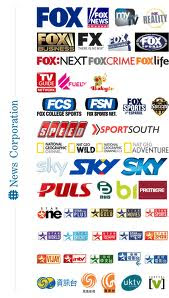Remember that Cablevision and News Corp. dilemma? Well, since the issue became public, it has attracted the attention of many. Newspapers keep following up with what really happened with the two companies. While in Congress, some politicians had demanded FCC’s involvement.
In an article in The Hill's Congress Blog by retransmission consent, he states that the congress created this term in order to “ensure that the public would retain access to local broadcast programming as cable television gained in power and influence.” However, it didn’t work quite well because broadcasters are using these provisions as an excuse to charge cable companies high fees for programming.
explains that when the Federal Communications Commission created this ruling the main purpose was to help market competition. They initially thought that cable stations were going to be a monopoly, so they created the retransmission consent in order to avoid future problems between broadcasters and cable stations.
The FCC has stated in their 2000 ruling that rates charged by networks or cable companies are determined by these businesses and the “commission does not have the authority to review these rates or to investigate allegations that the rates are excessive.”
However, now that the FCC doesn’t have any control over how much broadcasters can charge for their programming, broadcasters are taking advantage of the provision. Broadcasters know they can charge as much as they want because cable stations need their programming.
Right after the dispute between the two companies, Senator John Kerry conducted a meeting with some broadcast executives to examine the retransmission consent. He stated in a press release that in order to provide a fair service to subscribers this provision has to be changed. He also stated that the “FCC can and should use its existing authority to draft new rules” and he also reminded “the agency that its role is to protect those consumers.”
As of now, the FCC has not taking any action about this issue. Hopefully, after the attention that Cablevision and News Corp.’s dilemma took in the media and the Congress, the FCC will get more involved and do something about it. The issue here is that subscribers are the most affected by this inconvenient, and they are the ones who will have to pay the price. Because it’s for sure that cable companies will have to raise their fees in order to maintain their business.





